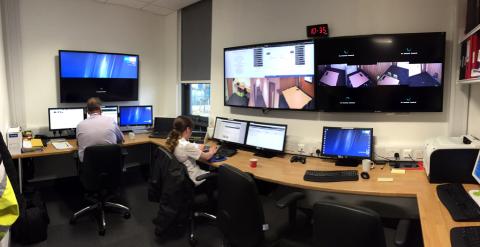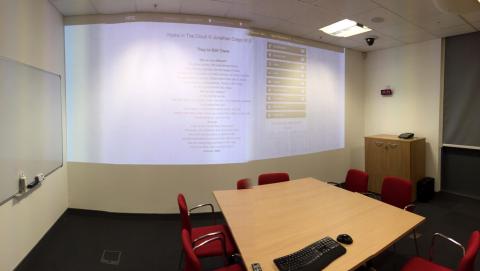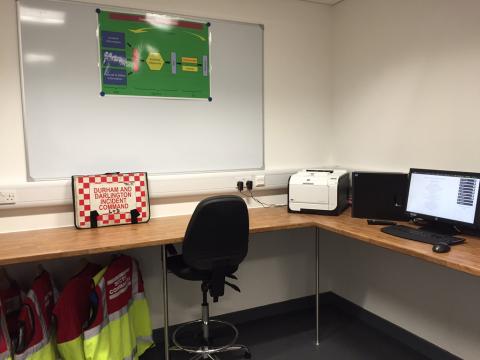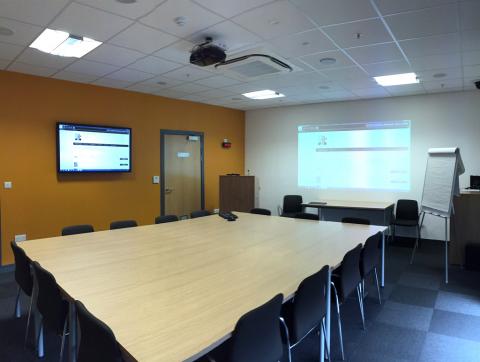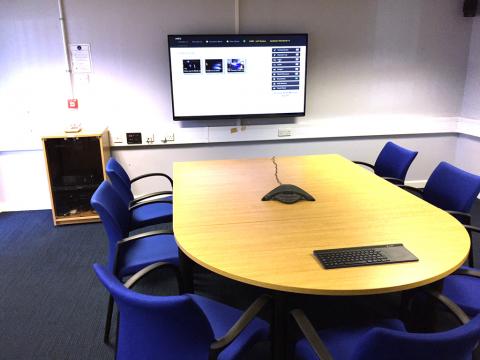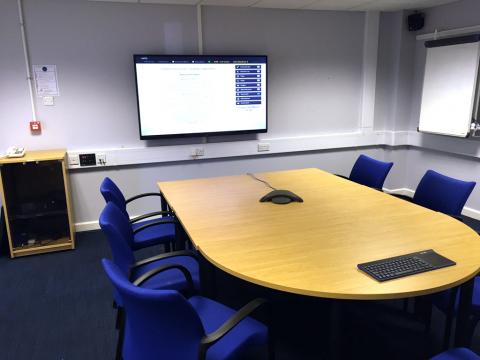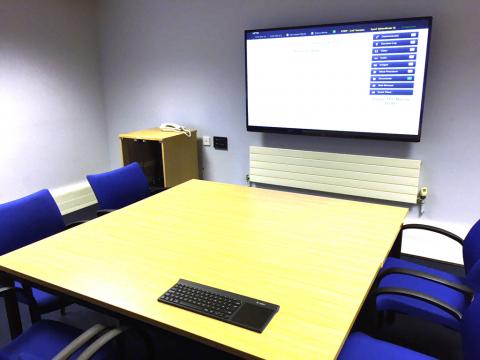Hydra Foundation Blog
You are viewing 5 posts for April 2016
County Durham and Darlington Fire and Rescue now running Hydra in the Cloud
The Hydra Foundation have now installed and commissioned Hydra in the Cloud for Durham and Darlington Fire and Rescue service at their new training centre. This is now the 2nd Fire service to run Hydra in the Cloud, the first being North Yorkshire Fire and Rescue. Professor Jonathan Crego MBE, Hydra Foundation Director, described the North East Fire Services as pioneering the use of Hydra in the Cloud. The centre opened in August 2015 is used by Durham Constabulary as part of a collaborative project in using Hydra methodology. Training by the Hydra Foundation was provided with the first exercise due to be delivery shortly.
Sellafield Workshop
On 23rd March 2016, the Hydra Foundation ran a workshop with 35 senior managers from the Sellafield Nuclear Power Station. The purpose of the workshop was to assemble from a broad Sellafield leadership constituency, a current in-depth strategic picture of the challenges confronting Sellafield in managing potential incidents and their potential consequences. The workshop was designed to identify whether Hydra and 10,000 volts events would meet their future needs.
The workshop commenced with a presentation by Professor Crego on Critical Incident decision making and an explanation of both the 10,000 volts and Hydra methodologies. The delegates then answered the question: ‘What matters?’ in relation to dealing with critical incidents and safety at their site. The exact content of their responses are of course sensitive and cannot be published here but they indicated a genuine understanding of the complexities involved and a real desire to keep both their own people and the public safe.
The delegates then moved on to identifying some potential scenarios that could be generated and delivered through the Hydra system. Throughout the sessions, the delegates demonstrated remarkable scientific and technical acumen and a mature and self-critical approach to the issues highlighted. They also demonstrated a willingness to engage in the development of training activities that would make a real difference.
The content that was produced throughout the 10,000 volt workshop showed an absolute synergy between what the managers at Sellafield have identified as their training needs and what the Hydra Foundation delivers in terms of complex, critical incident training in a highly immersive environment.
Canterbury Tales
Wow… four days and four exercises at Christchurch Canterbury University (CCCU).
On 14th to 17th March the Hydra Foundation and senior staff from School of Law & Criminal Justice and Computing ran an existing exercise twice and launched two exciting new exercises.
Although Foundation staff were on hand to assist and to add a few recommendations here and there to keep the exercises on song, every credit to the facilitators from the university who in a high pressure environment engaged their students in making difficult decisions and producing some exquisite rationale.
Monday 14th March saw the launch of the new Crime Scene Managers exercise, ‘Icarus’. With a dead body, some blood and gore to add the necessary reality, the students were quickly immersed in the exercise which was well received by all concerned.
Tuesday and Wednesday saw two separate deliveries of the existing Terrorism exercise, ‘Veritas’ which was first successfully launched in March 2015. This exercise was again well received by the student delegates and represents the blueprint of meeting the challenges of running HYDRA exercises in a university environment where practical skills and knowledge are not yet at an expert level.
Thursday saw the launch of the Cyber Crime exercise, ‘Cloister’. Only a small number of delegates attended this event and those that did were 2nd year students and not as in the previous exercises 3rd year students. This presented an additional challenge due to the theoretical knowledge base of the delegates being somewhat limited. The day however was adapted by Professor Jonathan Crego who ran the exercise in a plenary environment. The students were still tasked within the exercise and were quickly engaged with the emerging problems and the demand for making difficult decisions. These students will hopefully return to be engaged in one of the other exercises in their third year and their Hydra experience will add great value to any subsequent exercise.
CCCU is engaging with the Hydra experience to its fullest extent, already plans are in hand to develop a fourth exercise this year for the Social Work Skills courses. There are also plans for the university to build a purpose built HYDRA suite within the newly acquired HM Prison development which is adjacent to the main campus buildings.
Hats off to CCCU for building on a really successful first year.
College of Policing upgrades both their sites to Hydra in the Cloud
In March the Hydra Foundation completed the upgrade of both the College of Policing Hydra sites at Ryton and Harperley Hall. The Foundation carried out the upgrade of new computer technology along with a redesign and installation of control room new visual display system. 9 syndicate rooms have also been upgraded with new display screens and AV control panels. This new design allows for a more effective Hydra environment and an improved immersive learning experience.
Leeds Beckett
The Hydra Foundation is excited and proud of the partnership it has developed with Leeds Beckett University. Together we have created a 21st Century Hydra Suite in their Business and Law Department. The university teaching staff are hugely engaged in the student experience, one that is all about learning. Leeds now has developed a large group of Accredited Hydra Facilitators at the University. These dynamic and talented people are now able to design and deliver highly relevant, risk-based, decision scenarios, that fully exploit the immersive Hydra methodologies. By combining Business and Law, Leeds Beckett offer their own unique perspective and are fully engaged with the wider Hydra community, which has 80 centres delivering the methodologies. Leeds Beckett are the only installation in the world, delivering Business and Law education to under and post graduate students, using Hydra. It is working closely with the Hydra Foundation, on new scenarios to further its range of delivery both to university students and to the wider commercial and business communities.






